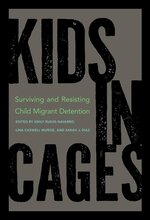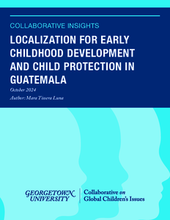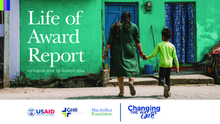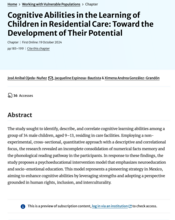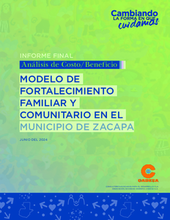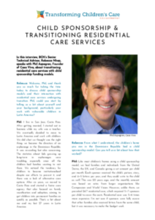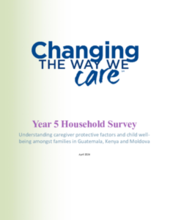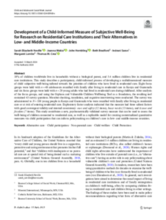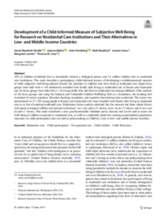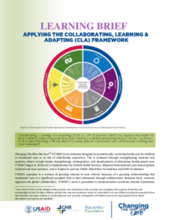Displaying 1 - 10 of 176
This interdisciplinary work brings together voices from the legal realm, the academic world, and the on-the-ground experiences of activists and practitioners. At the heart of these narratives lies a crucial debate: the tension between harm-reduction strategies and abolition.
This Collaborative Insights report gathers perspectives on strengthening ECD efforts from Guatemalan grassroots practitioners, national social movements, community-based organizations, international non-governmental organizations, donors, and the Guatemalan government.
The Changing the Way We Care℠ (CTWWC) Life of the Award Report highlights the initiative’s global efforts to promote safe, nurturing family care for children. Since 2018, CTWWC has been driving care reform in countries like Guatemala, Kenya, and Moldova, while supporting smaller projects in Haiti and India.
This study sought to identify, describe, and correlate cognitive learning abilities among a group of 34 male children, aged 9–13, residing in care facilities in Mexico. This model represents a pioneering strategy in Mexico, aiming to enhance cognitive abilities by leveraging strengths and adopting a perspective grounded in human rights, inclusion, and interculturality.
Guatemala, con una población en aumento que proyecta alcanzar los 17.8 millones de habitantes para 2024, enfrenta serios desafíos sociales y económicos, especialmente en áreas vulnerables como el municipio de Zacapa.
In this interview, BCN’s Senior Technical Advisor, Rebecca Nhep, speaks with Phil Aspegren, Founder of Casa Viva, about transitioning residential care services with child sponsorship funding models.
The Changing the Way We Care (CTWWC) initiative conducted its Year 5 Household Survey as part of its commitment to building evidence around outcomes for children and families in the context of care reform. The second round of this survey in Kenya and Guatemala, and first round in Moldova, aimed to understand the impact of CTWWC interventions on children and families transitioning from residential care to family-based alternatives or receiving support to prevent separation.
This study describes a participatory, child-informed process of developing a multidimensional measure of child subjective well-being tailored towards the priorities of children who have lived in residential care. The survey was administered to 180 young people in Kenya and Guatemala who were reunified with family after living in residential care or at risk of entering residential care.
This study describes a participatory, child-informed process of developing a multidimensional measure of child subjective well-being tailored towards the priorities of children who have lived in residential care. The study was conducted with focus groups in Kenya and Guatemala.
Since care reform is a long and complex process, requiring collaboration between many diverse actors, with different change pathways in diverse contexts, the Changing the Way We Care initiative set out to learn from different demonstration countries, build national and regional knowledge, and reinforce global momentum for family care. This learning brief describes some of that journey.
This brief shares how the initiative used CLA related to the social service workforce strengthening and case management.

